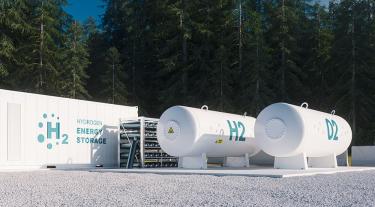COP27 insight series "accelerate the realization of net zero emissions"
On the occasion of world leaders gathered in COP27 ready for next month, we will discuss its net zero emissions transformation need to take action to discuss this important issue.In our new "accelerate the realization of net zero emissions" insight series, our experts will discuss the hydrogen, coal transition, cleaning, cooling, just outside the transition and the value chain of content.We will share the opinion of each of these challenges and opportunities, and illustrate to help us to accelerate the decarburization practical solutions for the future.We will discuss three parts, namely, the hydrogen potential difficulties, deployment, and how to overcome these difficulties, first start from the first part.
We can't forget, is working with the increasingly serious energy crisis extreme weather conditions.Every year since 2008, with an average of 22.5 million people displaced.Net zero targets have been established for the more than 70 countries/regions, which means that we cannot ignore decarburization agenda items3.Either through the use of renewable electricity for electrolytic hydrogen, or through carbon capture and storage for natural gas reforming hydrogen, clean hydrogen of electrification infeasible or high cost of industry, such as long-distance transportation and industrial) realize the decarburization is particularly important.
As gas prices soared in many countries (Britain, for example, the natural gas price is ten times higher than the average ten years2), innovation and reduce the cost of the time is ripe.The influence of the energy crisis will not only result in household spending, iron and steel company, chemical plants and manufacturers will also feel the impact of higher energy prices.When by electrolysis or biomass gasification to produce hydrogen gas to provide a local alternative, not affected by the global fossil fuel market.Therefore, for the troubled industry, hydrogen is becoming feasibility increasing choice.
Although the hydrogen to provide safety and environmental benefit is widely recognised, but little-known's contribution to the future energy system.Is given priority to with variable renewable energy system requires a higher level of flexibility, energy storage, renewable energy integration and system flexibility.The hydrogen can provide all of the following advantages:
- Flexibility -During the generating capacity more than demand will renewable energy is connected to the cell, can produce hydrogen in response to the changing power/electricity mode.
- Energy storage -Electronic hard to long time storage.Through the power can be converted to hydrogen, can renewable energy power generation in the summer peak capture energy and stored in winter.
- The system elastic -The hydrogen can be used to provide fuel for peak power plant, using during high demand.
- Renewable energy integration --Through renewable energy can be converted to hydrogen and provide renewable energy as a choice for molecular rather than electronic input energy system.It can overcome the problem of power constraints and transmission losses.
Due to the versatility of hydrogen as an energy carrier, can help to solve the following three challenges - energy security, decarburization and elastic energy system.However, it is not omnipotent.Studies have shown that hydrogen is a kind of indirect greenhouse gases, although do not emit carbon dioxide during use, but react with greenhouse gases in the atmosphere, will increase the possibility of global warming4.
In the process of production, storage, and distribution, any hydrogen leaks into the atmosphere will indirectly lead to global warming.Therefore, we must be careful, through targeted innovation to solve the high cost of hydrogen and deployment difficulty, ensure that the best way to integrating it into our energy system.
In the second part of the hydrogen insight series, we will study the deployment difficulty - technical, regulatory, and economic.Through the analysis and solve these difficulties, only to exert the potential of hydrogen.
References:
- 1National geographic, "the impact of climate change on extreme environmental events", in 2022.The influence of climate change on extreme environmental events| the national geographic society.
- 2ICE futures Europe, British gas futures.British gas futures| ICE (theice.com)
- 3The United Nations,"Seeking livable climate: net zero commitment must be credible action as support.Net zero discharge allianceNet (d0 coalition) | the United Nations.
- 4Frazer - Nash Consultancy, "the escape of hydrogen in the hydrogen economy in the future", the Ministry of Commerce, energy and industrial strategy, in 2022.The escape of hydrogen in the hydrogen economy in the future emissions- GOV. UK (www.gov.uk).



